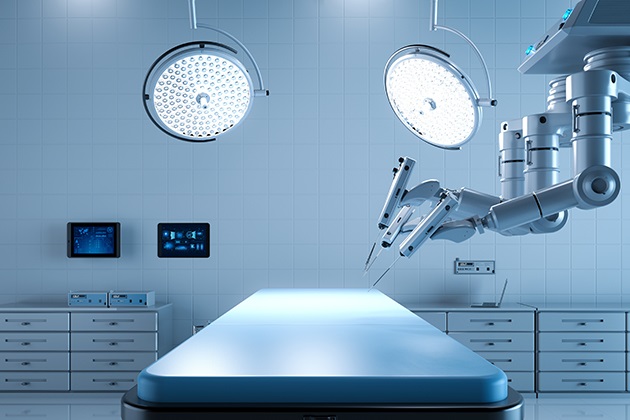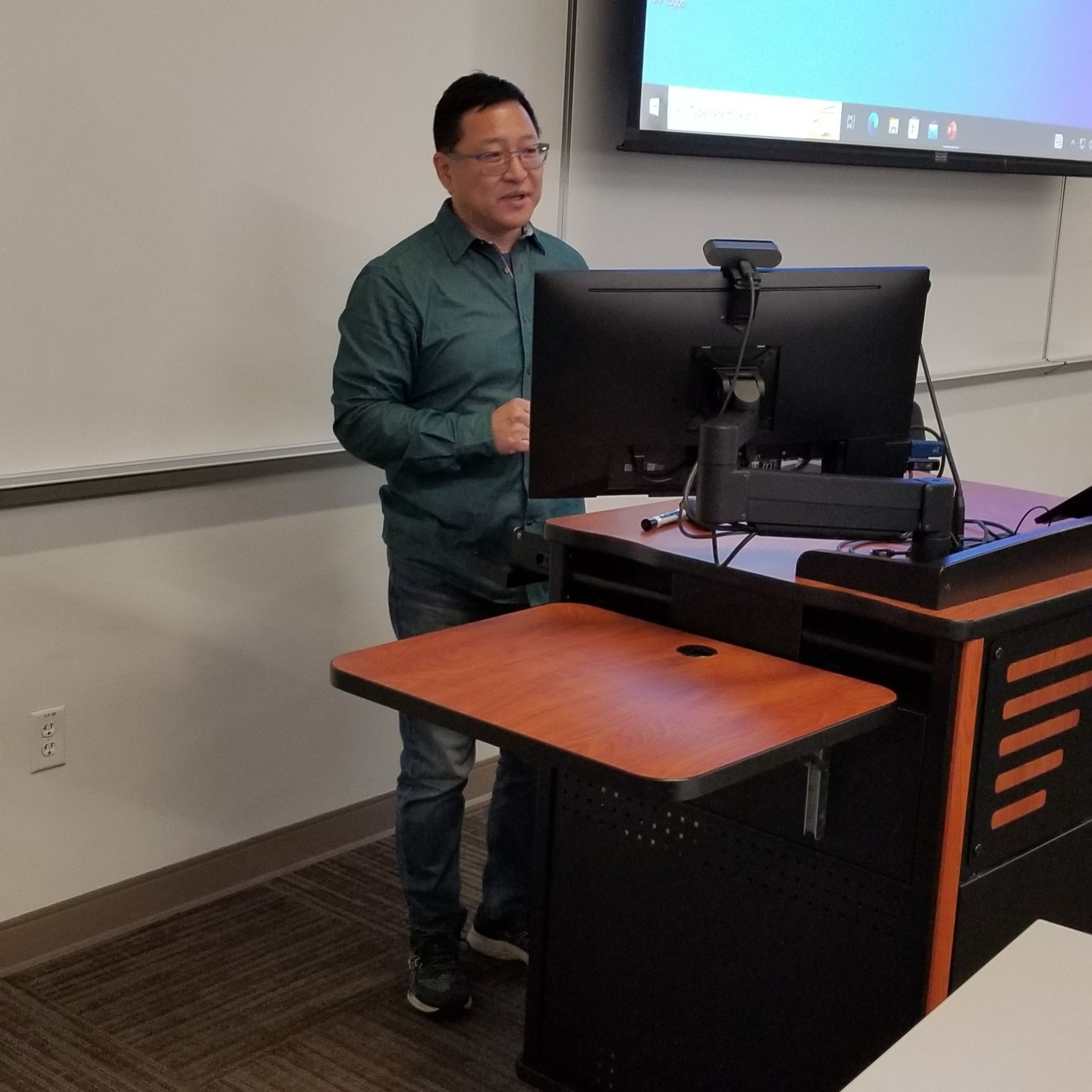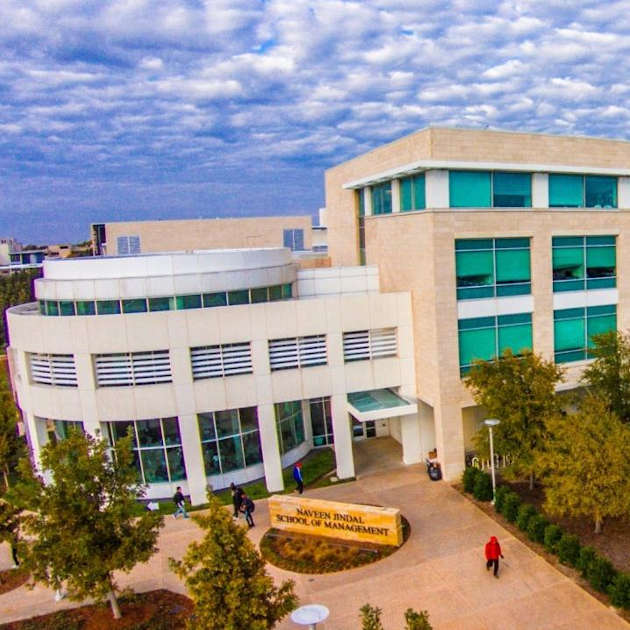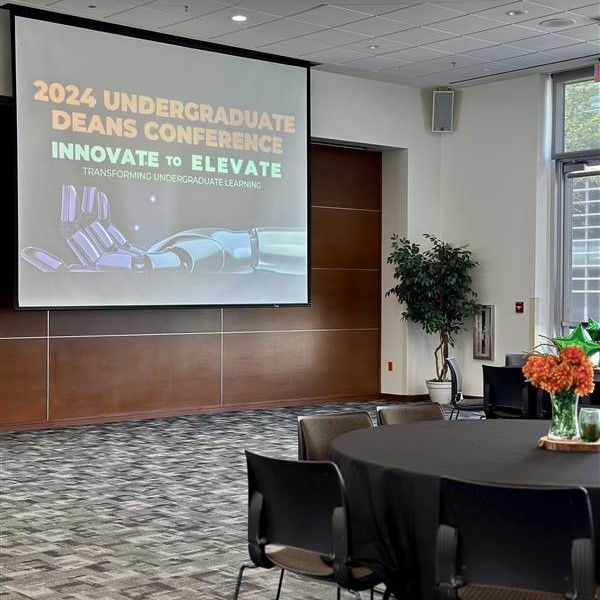

Dr. Tongil (T.I.) Kim, an assistant professor in the Marketing Area at the Jindal School, and Tae Jung Yoon, an assistant professor of Marketing at KAIST College of Business, Korea Advanced Institute of Science and Technology, South Korea, are co-authors of a research paper that has been published in the Journal of Marketing. The publication develops and shares information about real-world marketing subjects and is considered one of the premiere outlets for research in marketing.
The paper — “The Role of Advertising in Patients’ Choice of High-Tech Medical Procedures: A Study on Robotic Surgery” — investigates the influence of advertising on patients’ preferences for high-tech medical procedures, particularly robotic surgery.
“There is a bit of an arms race going on between hospitals to see which one can buy the best robotics,” Kim said. “We see promotions and advertising for medical procedures and medications frequently, and we became curious about the effect of advertising on whether patients choose to have robotic surgery.”
Although studies show that hospital advertising has grown more than fivefold in the past two decades, the topic has been understudied, according to Kim. He believes theirs is the first study of the effects of advertising robotic surgeries. Their research led them to analyze approximately 140,000 individual patient records as well as television advertising data from Florida from 2011 through 2015.
The research shows that advertising increases the number of robotic surgery procedures, especially among Medicaid patients, who typically have lower incomes. The shorter hospital stays associated with robotic surgery may be a factor influencing patients’ choice of procedure. However, the study found that robotic surgery does not provide any long-term health benefits over more conventional laparoscopic and open surgeries. Additionally, robotic surgery is more expensive, which means that the impact of advertising robotic surgery differs among patients, healthcare providers, insurance providers, surgical robot manufacturers and policymakers.
While patients can be influenced by advertising, they may not receive enough information about the pros and cons of a procedure. The study suggests there may be a need for increased transparency in healthcare advertising to better inform patients about the benefits and risks of different medical procedures, Kim said.
According to this study, though the cost of robotic surgery is high, it can provide benefits to hospitals and other healthcare providers; however, to attract patients, advertising strategies should be designed keeping in mind the specific needs and preferences of various patient groups.
As for policymakers, the fact that people on Medicaid tend to choose robotic surgery more often could affect these government-funded programs.
The study makes some suggestions for future research on this topic. First, since Kim’s and Yoon’s data are limited to Florida and that state has a population that is older than the rest of the country, data in other states is needed.
The study examined whether advertisements promote robotic surgery and did not investigate other aspects of these ads. Further research could explore the effectiveness of different hospital content in advertising high-tech procedures. Kim and Yoon’s study mainly focused on how patients respond to advertising without considering how hospital competition and patient reception can affect this response. They suggest that future research should address these issues to better understand the factors influencing patients’ choices regarding robotic surgery.
Hospital advertising has been a debatable subject in the United States for a long time. Until 1980, it was banned by the American Medical Association. According to this study, regulators should consider implementing rules for the marketing of high-tech procedures, similar to those for pharmaceuticals. Such regulations would ensure that patients receive more information about the potential benefits and drawbacks of a procedure before discussing the type of surgery they want to have with their physician.
While the effect of robotic surgery advertising is generally positive for other stakeholders, it is a different story for insurance companies, depending on long- and short-term health outcomes and costs. In addition, the higher cost of robotic surgery is also a higher cost for insurance coverage, meaning advertising of the robotic surgery possibly can contribute to rising premiums for consumers.
“For patients, as long as their out-of-pocket costs don’t go up, shorter hospital stays would be a good choice,” Kim said. “The higher costs would benefit the hospital as well, so advertising could be a good thing. For insurance companies, however, their costs will be higher and that could contribute to higher premiums for consumers down the road. This way, advertising in healthcare can contribute to the rising cost of healthcare in the U.S.”






